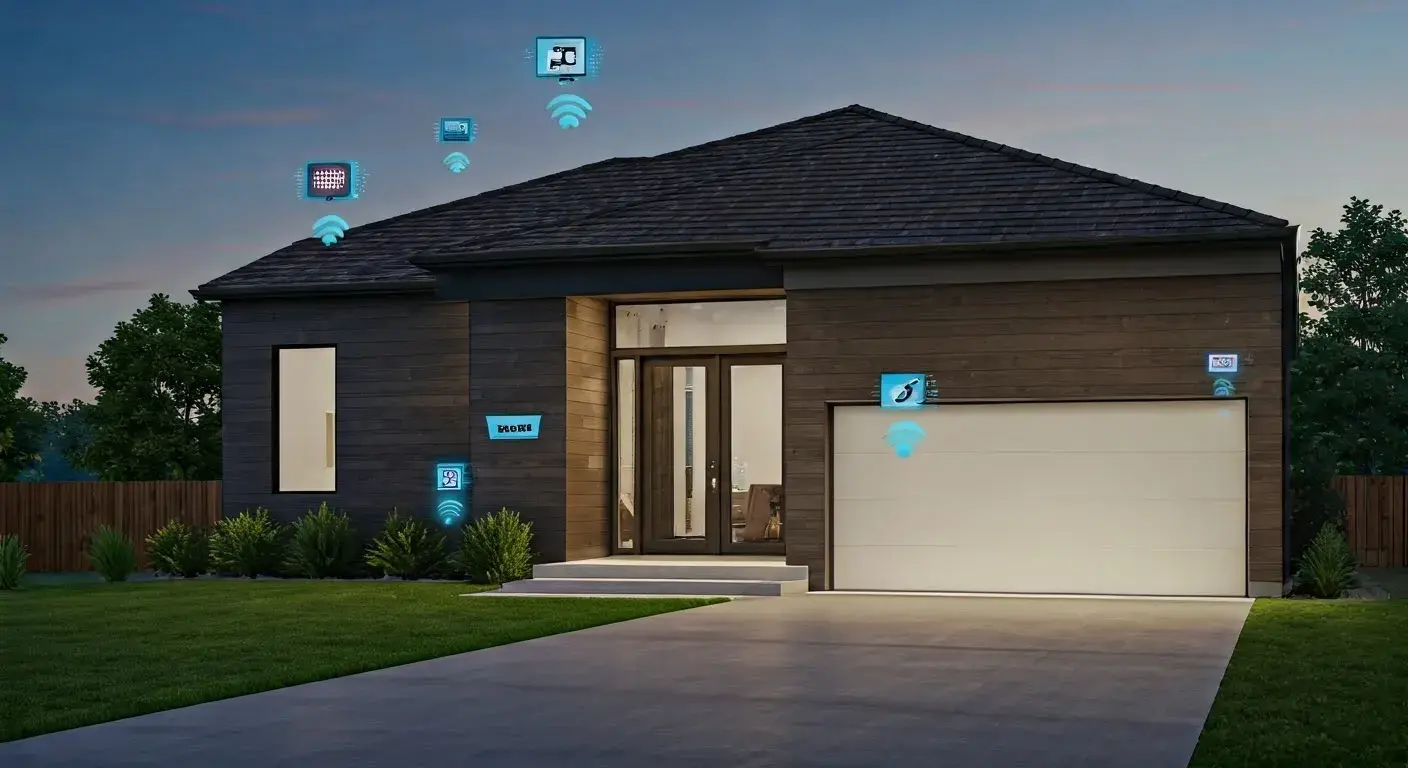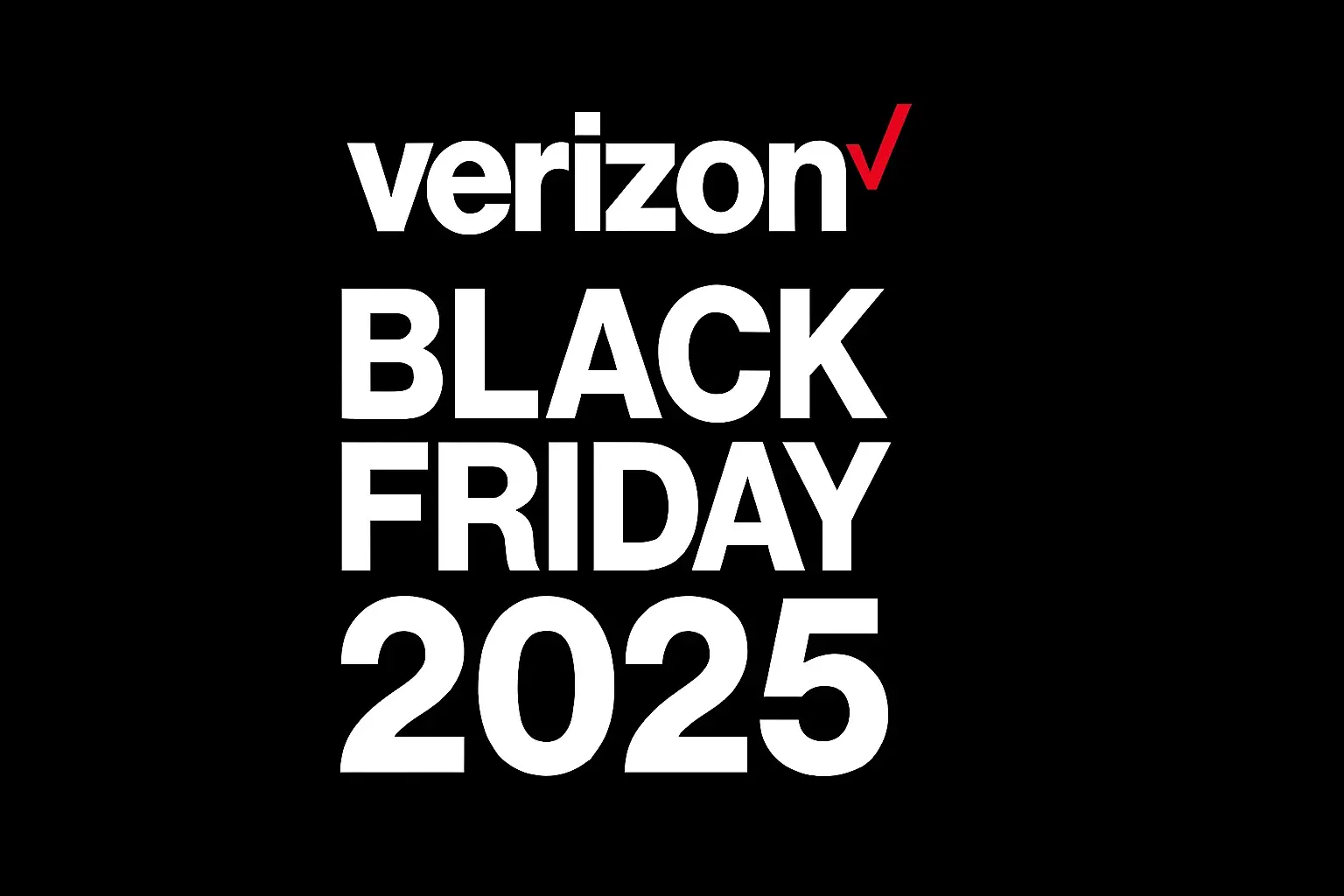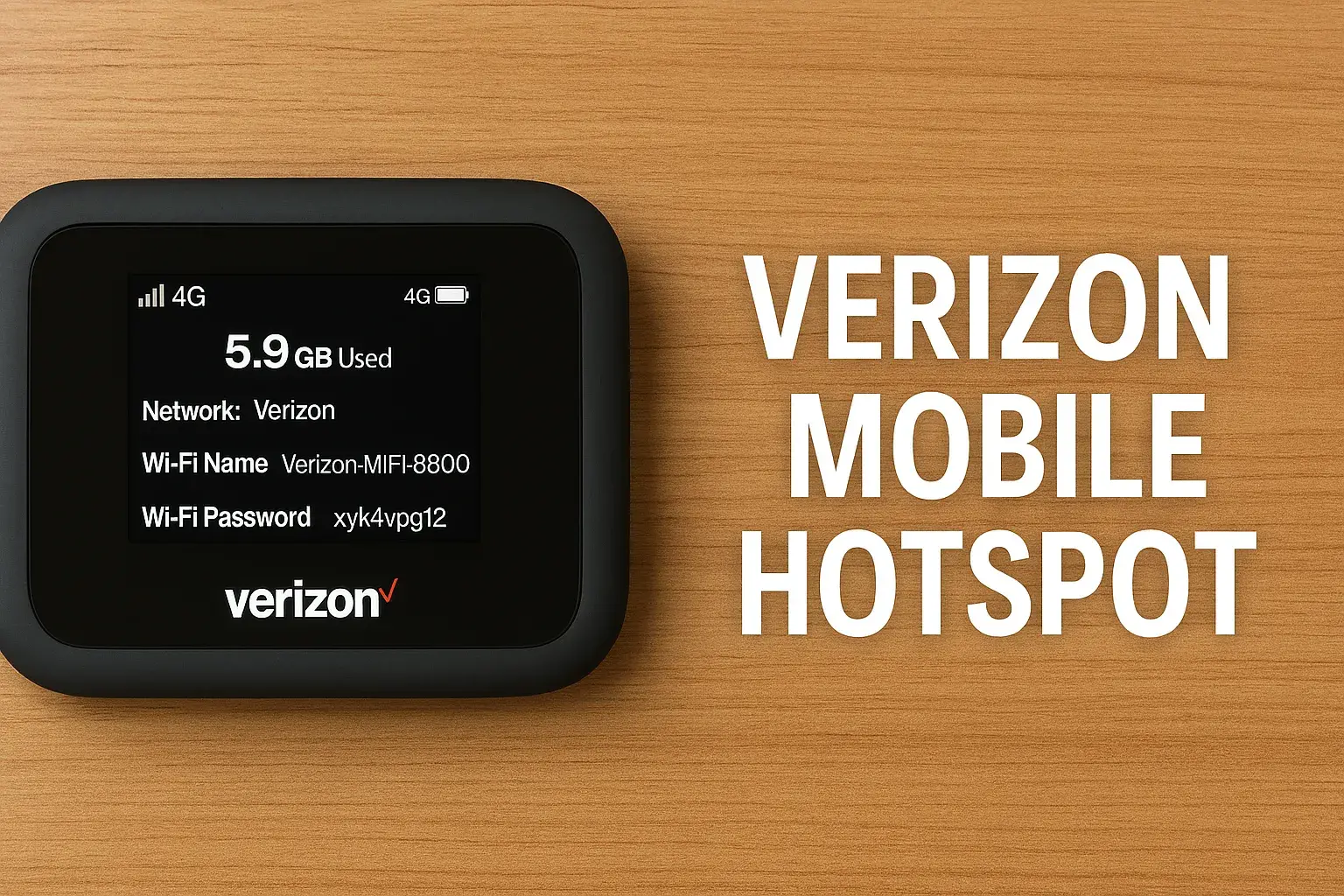Insider Insights: The Truth About Verizon 5G Home Internet

Curious about Verizon 5G Home Internet in 2025? This comprehensive guide dives deep into its performance, pricing, pros, and cons. Get the unfiltered truth and expert advice to determine if it's the right broadband solution for your home. Discover what competitors miss!
In 2025, Verizon 5G Home Internet continues to be a compelling alternative to traditional cable and fiber optic broadband. Leveraging the power of Verizon's expansive 5G network, this service aims to deliver high-speed internet directly to your home wirelessly. Unlike mobile 5G, which is designed for on-the-go connectivity, 5G Home Internet utilizes fixed wireless access (FWA) technology. This means a dedicated receiver is installed at your home, connecting to Verizon's 5G towers to provide your household with internet access.
The core promise is simple: ditch the bulky equipment, installation appointments, and often complex contracts of legacy providers for a more streamlined, potentially faster, and more affordable internet experience. However, like any technology, the reality of 5G Home Internet involves nuances that potential subscribers need to understand. This guide aims to cut through the marketing hype and provide an honest, in-depth look at what Verizon 5G Home Internet truly offers in 2025, drawing on the latest data and user experiences. We'll explore its true capabilities, hidden costs, and whether it lives up to the "future of the internet" buzz.
The performance of Verizon 5G Home Internet is the cornerstone of its appeal, and in 2025, its capabilities have matured significantly. However, it's crucial to differentiate between the different types of 5G Verizon employs.
Understanding Verizon's 5G Tiers
- 5G Ultra Wideband (UWB): This is the premium tier, utilizing millimeter-wave (mmWave) spectrum. It offers the fastest speeds, often rivaling or exceeding gigabit fiber, with extremely low latency. However, mmWave has a limited range and struggles with obstructions like walls and even foliage. Its availability is typically confined to dense urban areas and specific venues.
- 5G Nationwide: This tier uses lower-frequency spectrum (similar to 4G LTE) and offers broader coverage. Speeds are generally better than 4G LTE but not as fast as Ultra Wideband. Latency is also higher than mmWave. This is the most common type of 5G you'll encounter for home internet in many suburban and less densely populated areas.
Speed Expectations in 2025
In 2025, Verizon advertises speeds typically ranging from 100 Mbps to 300 Mbps for 5G Home Internet (Plus), and up to 1 Gbps download speeds for 5G Ultra Wideband Home Internet. Real-world tests, however, show variability.
- 5G Ultra Wideband: Users in prime locations can indeed experience speeds exceeding 1 Gbps, making it excellent for heavy data users, multiple 4K streams, and large file downloads. Latency can be as low as 10-20ms.
- 5G Nationwide: Typical download speeds often hover between 75 Mbps and 200 Mbps, with upload speeds usually being significantly lower (e.g., 10-25 Mbps). Latency might range from 30 to 60ms.
Key Insight: Your actual speed is heavily dependent on your location, the specific 5G spectrum used in your area, network congestion, and the placement of the Verizon 5G receiver in your home. Always check availability and expected speeds for your exact address.
Latency: The Gaming and Real-Time Advantage
Latency, or ping, is the time it takes for data to travel from your device to a server and back. For gamers, video conferencing, and real-time applications, low latency is crucial. Verizon's 5G Ultra Wideband excels here, offering latency comparable to fiber. 5G Nationwide latency is respectable, generally better than most DSL or older cable connections, but not as low as UWB or fiber.
Reliability: A Tale of Two Networks
Reliability can be a mixed bag. In areas with strong 5G Ultra Wideband signals and minimal obstructions, reliability is excellent. However, mmWave's limited range means a slight move or a new building can disrupt the signal. 5G Nationwide is generally more reliable due to its broader coverage and better penetration, but it's still susceptible to signal degradation from distance and obstructions. Network congestion during peak hours can also impact performance, especially in densely populated areas.
- 5G UWB: Blazing fast speeds (up to 1 Gbps+), ultra-low latency (10-20ms). Best for dense urban areas.
- 5G Nationwide: Good speeds (75-200 Mbps typical), moderate latency (30-60ms). Broader coverage.
- Key Factor: Location, spectrum type, and signal strength dictate your experience.
Decoding Verizon 5G Home Internet Plans and Pricing for 2025
Verizon's pricing structure for 5G Home Internet in 2025 is designed to be competitive, often eliminating common fees associated with traditional ISPs.
| Plan Name | Typical Download Speeds | Upload Speeds | Monthly Price (with Auto Pay & Included) | Data Cap | Contract |
|---|---|---|---|---|---|
| 5G Home Internet | 100-300 Mbps | 10-20 Mbps | $50.00 | Unlimited | None |
| 5G Home Internet Plus | 200-400 Mbps | 20-40 Mbps | $70.00 | Unlimited | None |
| 5G Ultra Wideband Home Internet | Up to 1 Gbps+ | 50-100 Mbps+ | $75.00 (with Auto Pay) | Unlimited | None |
*Prices are estimates and can vary by location and promotions. Always check Verizon's official website for the most current pricing and availability for your address. Auto Pay discount is typically applied when you set up automatic payments with a bank account or debit card.
What's Included (and What's Not)
- Free Equipment: Verizon typically provides the 5G Home Internet router/gateway at no extra charge.
- No Data Caps: A significant advantage over some competitors, Verizon 5G Home Internet plans offer unlimited data.
- No Annual Contracts: You are not locked into long-term commitments, offering flexibility.
- Potential Installation Fees: While often free for self-installation, professional installation might incur a one-time fee, though this is less common now.
- Taxes and Fees: While Verizon aims for transparent pricing, always factor in potential local taxes and surcharges.
Promotional Offers and Discounts
Verizon frequently runs promotions, especially for new customers. These can include discounted monthly rates for the first 6-12 months, or bundled deals if you're already a Verizon mobile customer. Loyalty discounts for existing Verizon mobile customers are a key selling point, often reducing the monthly bill by $10-$20. Always ask about these when signing up.
Actionable Tip: Before committing, visit Verizon's 5G Home Internet availability checker for your specific address. This will show you which plans are offered and the exact pricing in your area. Compare this with competitor offers to ensure you're getting the best value.
The Unvarnished Pros and Cons of Verizon 5G Home Internet
Every internet service has its strengths and weaknesses. Understanding these can help you make an informed decision about whether Verizon 5G Home Internet is the right fit for your household's needs in 2025.
Pros: The Upsides to Consider
- Potentially Lower Cost: Often cheaper than comparable cable or fiber plans, especially when bundled with Verizon mobile service.
- Unlimited Data: No more worrying about data overages or throttling. Stream, game, and browse to your heart's content.
- No Annual Contracts: Flexibility to switch providers if your needs change or a better offer emerges.
- Easy Setup: Typically self-installable with a user-friendly router, minimizing the need for technician visits.
- Fast Speeds (in UWB areas): 5G Ultra Wideband can deliver speeds rivaling fiber, ideal for demanding users.
- Reduced Latency (in UWB areas): Excellent for online gaming and real-time applications.
- Bundling Discounts: Significant savings are often available for existing Verizon wireless customers.
Cons: The Downsides to Be Aware Of
- Availability is Key: 5G Home Internet, especially Ultra Wideband, is not available everywhere. Coverage can be spotty even within a city.
- Performance Variability: Speeds and reliability can fluctuate based on network congestion, weather, and obstructions, especially for 5G Nationwide.
- Upload Speeds Can Be Limited: While download speeds are often impressive, upload speeds on the standard 5G Home Internet plans are considerably lower than download speeds, which can impact video calls or large file uploads.
- Router Placement is Crucial: The 5G receiver's optimal placement within your home is vital for signal strength, which may require some experimentation.
- Not Ideal for All Homes: Homes with thick walls, metal siding, or located far from a 5G tower may experience weaker signals and slower speeds.
- Potential for Throttling During Extreme Congestion: While advertised as unlimited, Verizon reserves the right to deprioritize or throttle heavy users during times of extreme network congestion, though this is rare for home internet users.
Verizon 5G Home Internet vs. The Competition: A 2025 Showdown
How does Verizon 5G Home Internet stack up against established players like Xfinity, Spectrum, AT&T Fiber, and other fixed wireless providers in 2025? Let's break it down.
| Feature | Verizon 5G Home Internet | Cable (e.g., Xfinity, Spectrum) | Fiber Optic (e.g., AT&T Fiber, Verizon Fios) | Other Fixed Wireless (e.g., T-Mobile Home Internet) |
|---|---|---|---|---|
| Typical Speeds | 100-300 Mbps (Nationwide), Up to 1 Gbps+ (UWB) | 100 Mbps - 1.2 Gbps+ (variable by plan & location) | 300 Mbps - 2 Gbps+ (symmetrical) | 100-200 Mbps (typical) |
| Latency | 30-60ms (Nationwide), 10-20ms (UWB) | 20-50ms (generally good) | <10ms (excellent) | 30-60ms (comparable to 5G Nationwide) |
| Data Caps | Unlimited | Often 1TB or 1.2TB, with overage fees or throttling | Usually Unlimited | Unlimited |
| Contracts | None | Often 1-2 year contracts with price hikes after promo | Typically, or short intro contracts | None |
| Pricing (Monthly Est.) | $50 - $75 (with discounts) | $60 - $100+ (for comparable speeds) | $70 - $120+ (for comparable speeds) | $50 - $70 |
| Availability | Growing, but limited by the 5G network | Widespread in urban/suburban areas | Limited to fiber-served areas | Growing, limited by 4G/5G network |
| Installation | Easy self-install | Professional installation is often required/recommended | Professional installation is usually required | Easy self-install |
Where Verizon 5G Home Internet Shines
- Cost-Conscious Users: Especially if you're a Verizon mobile customer, the bundled discounts make it very attractive.
- Unlimited Data Seekers: If you're tired of data caps, Verizon's unlimited offering is a major plus.
- Those in UWB Areas: If you're lucky enough to have 5G Ultra Wideband coverage, you get near-fiber speeds and latency without the fiber installation hassle.
- Flexibility Needs: The lack of contracts is a significant advantage over many cable providers.
Where Competitors Might Be Better
- Absolute Best Performance: Fiber optic internet still reigns supreme for consistent, symmetrical high speeds and ultra-low latency across the board.
- Guaranteed Speeds: Cable and fiber tend to offer more predictable speeds, less affected by external factors than fixed wireless.
- Widespread Availability: Cable internet is available in far more locations than Verizon's 5G Home Internet.
- Higher Upload Speeds: For content creators or those frequently uploading large files, fiber's symmetrical speeds are unmatched.
Competitive Edge: Verizon's strength lies in its ability to offer a compelling blend of unlimited data, competitive pricing (especially with bundles), and potentially very high speeds via 5G Ultra Wideband, all without a contract. However, for absolute speed and reliability guarantees, fiber remains the gold standard.
Getting Started: A Simple Setup Guide for Verizon 5G Home Internet
One of the biggest draws of Verizon 5G Home Internet is its straightforward setup process. In most cases, you can get online in under 30 minutes without needing a technician.
- Check Availability: First, visit Verizon's website and enter your address to confirm 5G Home Internet is available at your location and which plans you qualify for.
- Order Your Equipment: Once confirmed, order your chosen 5G Home Internet plan. Verizon will ship you the 5G Home Internet Gateway device.
- Unpack and Power Up:
- Unpack the Gateway and its power adapter.
- Find a central location in your home, ideally near a window or on an upper floor, for the best signal reception. Avoid placing it in closets or behind large metal objects.
- Connect the power adapter to the Gateway and plug it into a wall outlet.
- The Gateway will power on and begin its startup sequence. This can take a few minutes.
- Download the My Verizon App: This app is crucial for setup and management. Download it from your smartphone's app store.
- Follow In-App Instructions:
- Open the My Verizon app and follow the prompts for 5G Home Internet setup.
- The app will guide you through connecting your smartphone to the Gateway's temporary Wi-Fi network.
- It will then help you find the optimal placement for the Gateway by showing you the signal strength. You might need to reposition the device a few times.
- Once you've found the best spot, the app will help you set up your permanent Wi-Fi network name (SSID) and password.
- Connect Your Devices: Once your Wi-Fi network is set up, connect your computers, smartphones, smart TVs, and other devices to your new Verizon 5G Home Internet network using the Wi-Fi name and password you created.
- Test Your Connection: Use a speed test website or app (like Speedtest.net) on a few different devices to verify your internet speeds and ensure everything is working as expected.
Troubleshooting Tip: If you encounter issues, the My Verizon app often has built-in troubleshooting tools. You can also restart the Gateway by unplugging it for 30 seconds and plugging it back in. If problems persist, contact Verizon customer support.
Real-World Scenarios: Who is Verizon 5G Home Internet Best For in 2025?
While Verizon 5G Home Internet offers a compelling package, it's not a one-size-fits-all solution. Understanding who benefits most can help you decide if it's the right move for your household.
Ideal Candidates:
- Existing Verizon Wireless Customers: The bundle discounts are substantial, making it one of the most cost-effective options available if you're already in the Verizon ecosystem.
- Example: A family with multiple smartphones on Verizon plans could save $20/month on their internet bill, significantly reducing overall connectivity costs.
- Residents in 5G Ultra Wideband (UWB) Areas: If your address is covered by Verizon's mmWave 5G network, you're in for a treat. You can get near-fiber speeds and latency without the hassle of fiber installation.
- Example: A gamer living in a downtown area with UWB coverage can enjoy seamless online gaming sessions with minimal lag, often at a lower price than fiber.
- Those Seeking Unlimited Data: If you stream a lot of video, download large files, or have a household with multiple users, the unlimited data policy is a huge advantage over capped plans from cable providers.
- Example: A remote worker who frequently participates in video conferences and downloads large project files will appreciate not worrying about data limits.
- Renters or Those Avoiding Installation Hassles: The easy, self-install process and lack of long-term contracts make it an attractive option for renters who can't or don't want to deal with professional installations.
- Example: A student moving into a new apartment can get online quickly and easily without scheduling a technician, saving time and effort.
- Budget-Conscious Consumers: For many, Verizon 5G Home Internet offers a significant cost saving compared to traditional broadband, especially when considering the included unlimited data and lack of contracts.
- Example: A retiree on a fixed income looking for reliable internet without breaking the bank might find Verizon's plan offers the best value.
Who Might Want to Look Elsewhere:
- Residents in Areas with Limited 5G Coverage: If your address is only served by 5G Nationwide with weaker signals, or not covered at all, the speeds and reliability might not meet your needs.
- Example: Someone in a rural area with only basic 4G LTE available might find speeds too slow for their streaming habits.
- Heavy Upload Users: While download speeds are good, upload speeds on the standard 5G Home Internet plans are often significantly lower. If you regularly upload large videos or host servers, this could be a bottleneck.
- Example: A professional videographer who needs to upload hours of high-resolution footage daily would likely be better served by fiber.
- Those Needing Absolute, Unwavering Reliability: While generally reliable, fixed wireless can be more susceptible to environmental factors (weather, obstructions) and network congestion than wired connections like fiber or even robust cable.
- Example: A business that relies on a constant, uninterrupted connection for critical operations might prefer the stability of fiber.
The Verdict: Verizon 5G Home Internet is a strong contender for many, offering a modern, flexible, and often affordable internet solution. Its success hinges heavily on your specific location and Verizon's network infrastructure there.
Navigating Potential Pitfalls and Troubleshooting Common Issues
Even with a smooth setup, users can encounter occasional issues with Verizon 5G Home Internet. Knowing common problems and how to address them can save you time and frustration in 2025.
Common Pitfalls and Solutions:
- Slow Speeds:
- Cause: Network congestion, signal obstruction, distance from tower, router placement.
- Solution:
- Restart your 5G Home Internet Gateway.
- Check the My Verizon app for signal strength and try repositioning the Gateway, ideally near a window.
- Avoid placing the Gateway near large metal objects or in enclosed spaces.
- Run a speed test during off-peak hours (e.g., early morning) to see if congestion is the issue.
- If speeds are consistently low and the signal is weak, contact Verizon support to check for network issues or potential alternatives.
- Intermittent Connectivity (Dropping Out):
- Cause: Weak signal, interference, temporary network outage.
- Solution:
- Ensure the Gateway is securely plugged in and has power.
- Check the My Verizon app for signal status.
- Try a different power outlet.
- Move the Gateway to a different location.
- If the issue persists, it might be a localized network problem. Contact Verizon support.
- Wi-Fi Dead Spots in the Home:
- Cause: The Gateway's Wi-Fi signal may not reach all corners of a large or multi-story home.
- Solution:
- Relocate the Gateway to a more central position.
- Consider purchasing a Wi-Fi mesh system or a range extender and connecting it to the Verizon Gateway via Ethernet for better coverage.
- Issues Connecting New Devices:
- Cause: Incorrect Wi-Fi password, device compatibility, Gateway needing a reboot.
- Solution:
- Double-check that you are entering the correct Wi-Fi password (case-sensitive).
- Restart your 5G Home Internet Gateway.
- Ensure your device supports the Wi-Fi band your Gateway is broadcasting (most modern devices do).
- Check the My Verizon app for any device connection limits or settings.
- High Latency for Gaming/Video Calls:
- Cause: Using 5G Nationwide instead of Ultra Wideband, network congestion, or distance to game servers.
- Solution:
- Verify if you are on the 5G Ultra Wideband network. If not, and UWB is available at your address, consider upgrading.
- Ensure your Gateway is positioned for the strongest possible signal.
- Close unnecessary background applications on your devices that might be consuming bandwidth.
- Connect your gaming console or computer directly to the Gateway via Ethernet cable if possible for the most stable connection.
Proactive Maintenance: Regularly updating the Gateway's firmware (usually handled automatically by Verizon) and keeping the My Verizon app updated can help prevent many issues.
When to Call Support: If you've tried basic troubleshooting and are still experiencing significant problems, don't hesitate to contact Verizon customer support. They can remotely diagnose issues and advise on next steps, which might include a replacement Gateway or a technician visit if necessary.
Faq
Q1: Is Verizon 5G Home Internet truly unlimited in 2025?
Yes, Verizon 5G Home Internet plans offer truly unlimited data with no data caps or overage charges. This is a significant advantage over many traditional cable internet plans that impose monthly data limits.
Q2: Can I use Verizon 5G Home Internet for online gaming?
For the best gaming experience, 5G Ultra Wideband (UWB) is highly recommended due to its extremely low latency (often under 20ms). 5G Nationwide offers acceptable latency for casual gaming but might not be ideal for highly competitive, fast-paced online games where every millisecond counts. Always check UWB availability for your address.
Q3: What happens if Verizon 5G Home Internet speeds are slower than advertised?
Speeds can vary based on location and network conditions. If you consistently experience speeds much lower than expected, first try repositioning your Gateway and restarting it. If the problem persists, contact Verizon support. They can diagnose signal strength and network congestion issues. Remember that advertised speeds are often "up to," and real-world performance can differ.
Q4: Does Verizon 5G Home Internet require a professional installation?
In most cases, no. Verizon 5G Home Internet is designed for easy self-installation. You'll receive a Gateway device that you can set up yourself by following instructions via the My Verizon app, which helps you find the optimal placement for the best signal. Professional installation is rarely required and may incur an extra fee.





